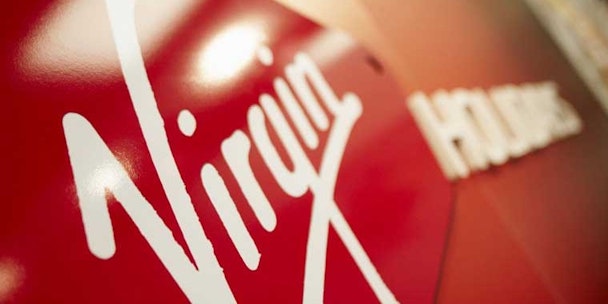Virgin Holidays to be ‘less reliant on sales emails’ in CRM shakeup
Rather than bombard customers with sales emails, Virgin Holidays is introducing more personalised alternatives that won’t chase open rates and click-throughs.

Virgin Holidays outlines CRM strategy
The shake is gathering momentum going into the peak holiday season. “We [Virgin Holidays] want to be less reliant on trading-focused emails and move to a more customer-centric approach For example, where the content of the email is dictated by what is relevant and useful to that individual customer at a given moment in time.”” said Saul Lopes, strategic insights and loyalty manager at Virgin Holidays.
So, whereas before the business might have fired out a hoard of promotional emails with a personalised subject line, now it’s working with Proximity to use triggers like store location and the weather to try and build a relationship.
“The future is about being better at using data to match the trading needs of the business to particular customer needs. However, as soon as they have engaged with us we know we can get the results by using online behavioural data to quickly follow up and deliver a tailored onward journey.”
Bringing the two together could mean a personalised email being backed by a different type of message on social networks or elsewhere online. As such, Lopes is working closer with Virgin Holidays’ digital team to align the CRM data with its digital counterpart in order to unearth new segments.
“Instead of looking at the open rates, my strategy is to reach as many people as possible with personalisation en masse,” Lopes explained.
Early tests tried to make it “fun” to receive the emails, according to Lopes, who, with his team, are mixing contextual and high engagement emails to try and get the right mix. For instance, he knows that between September and November last year people took longer to look for and then book a holiday, meaning that this year he will start slipping in more communications about the upcoming January sale on the knowledge that “a lot of people are already waiting for the sale to come through”.
What Lopes wants is an engagement model to sit alongside the attribution model Virgin Holidays built two years ago. It’s already allowed the brand to match 30% of online and offline sales. Where the engagement model will work is in helping to identify how people like to be spoken to. For example, depending on how many interactions a person has with the brand, should the pass a certain threshold then they may receive an outbound call from its sales team or expand on the work already done around engaged and non-engaged audiences.
Inevitably, the decision to seemingly break from the performance-driven sensibilities so deeply engrained in the sector was debated but a “high percentage doesn’t always mean a big business result”.
“I’m always having this debate internally with my teams, which is looking at the correlation between engagement and email and how the margin increases,” he added.
“At the end of the day the more you communicate, the more margin we make. It’s a harsh statistic but it does actually work and that’s what we started investigating once we had all the data from the attribution model. We looked at our click-rate and we looked at our engagement rate and we said there’s a trend here but we can’t abuse it.”
To date, the strategic shift has allowed the business to push people to local agents based on purchase data as well as get better at exploiting the UK’s characteristically unreliable weather. As soon as there’s a bad week of rain for example, Virgin Holidays sees a noticeable uplift in sales, while the opposite happens when it’s hot, and so the business has been playing with weather-activated offers. All this is couched in “destination propensity modelling”, a technique Lopes said allows he and his team to know “what destinations we should talk to each customer.”
Like many marketers now, Lopes is wrestling with balancing mass reach with personalisation. The need for getting the mix right between the two types of targeting is laid bare in Lopes’ frank admission that while he tries to “personalise” Virgin Holidays’ marketing “I never know when someone’s in the market to buy a holiday…I always need more mass distribution to understand people’s initial interest and only after that can I start personalising their journey,” he added.
The work being done at Virgin Holidays is set to spread to Virgin Atlantic Airways after it appointed Proximity London earlier this month. Described as a “streamlined, strategic role, the agency will handle the strategy for comms, data and tech, CRM and creative.
“The age of the customer is officially here and for a customer obsessed organisation such as ourselves, this appointment is critical for the airlines future success,” said Michelle Robinson, senior manager for CRM and Analytics, Virgin Atlantic Airways.
“Whilst we adopt new martech and develop our in-house capabilities, Proximity are the perfect partner to support our customer engagement ambitions. The team at Proximity went above and beyond throughout the pitch process and I fell head over heels for their passion for our brand and CRM.”

